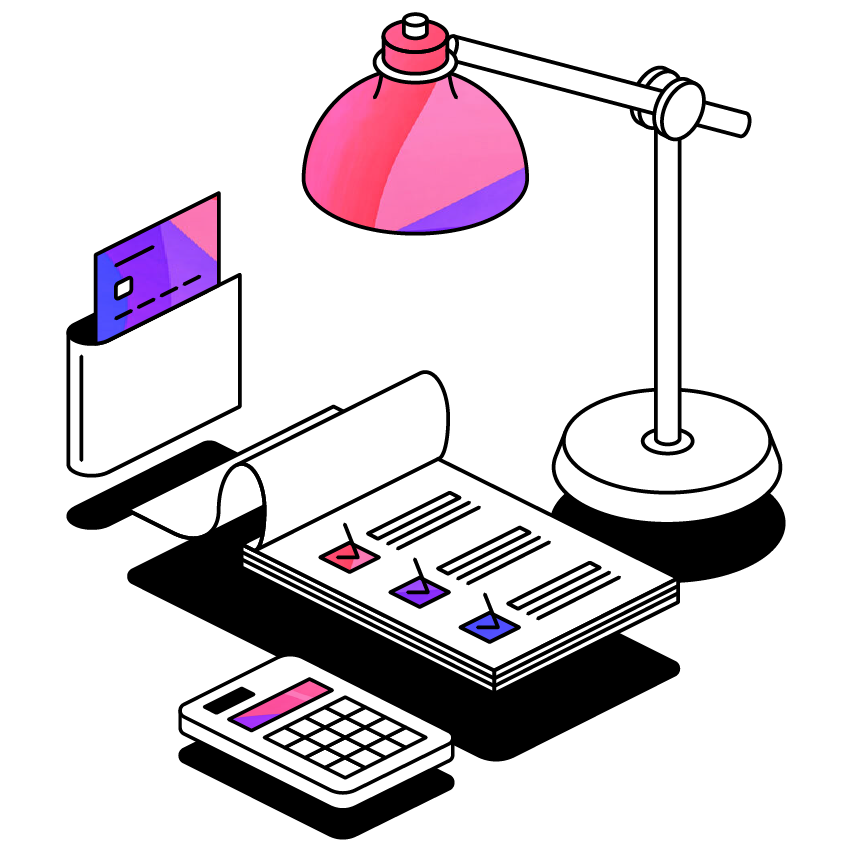6 college hacks to beat procrastination
Struggling to get started and stick to routines at college? You're not alone - procrastination is one of the biggest challenges we face, both in education and beyond! So, we've put together a list of 6 strategies to help you beat procrastination and stick to those goals!
 5 min read
5 min read
 Published: 10 Nov 2025
Published: 10 Nov 2025
 Joe Hird
Joe Hird


Let's face it: as a college student your schedule is packed. You're juggling classes, maybe a campus job, and a social life. Procrastination isn't a sign of laziness; it's often a sign of being overwhelmed. The good news? You don't have to overhaul your life to get ahead. You just need to work smarter.
Here are six powerful, brain-friendly strategies to help you stop putting things off and start crushing your semester goals 🙌🥅🎉.
Only got a couple of mins? Here's a brief overview if you're short on time!
|
Strategy |
Action | Why it works |
|
1. Remove distractions |
Use website blockers and find a quiet zone in the campus library. |
You remove the potential for distributions before you start. |
|
2. Focus on the process |
Break huge tasks into tiny steps (e.g., "Find one article" instead of "Write the paper"). |
Starting becomes less overwhelming and perfectionism is avoided. |
|
3. Build momentum |
Use the 10-Minute Trick: Commit to working for just 10 minutes. |
Action generates motivation; you rarely stop after 10 minutes |
|
4. Block time |
Use time blocking or the Pomodoro Technique (25 min focus/5 min break). |
Creates structure, making time tangible and reducing stress. |
|
5. Build habits |
Study at the same time daily and use sensory cues (like a specific playlist). |
Makes focus automatic, relying on discipline over motivation. |
|
6. Reinforce with rewards |
Schedule small, fun rewards after completing focus blocks. |
Boosts motivation and ensures you take essential, guilt-free breaks. |
1. Remove distractions from your study area
Our ability to predict problems is a powerful, yet underrated, skill. For students in college, that means learning to predict what might pull your attention away and setting up safeguards before the study session even begins!
tart by being honest about your biggest threats. This might be your phone, social media or maybe other responsibilities which demand your time. Then, take action:
- Digital lockdown: Install website blockers on your devices and commit to keeping the number of browser tabs open to an absolute minimum.
- Mobile phone strategy: When you start a deep-focus session, switch your phone to Do Not Disturb mode or ideally, put it completely out of sight or in another room. If you know you have dependencies, such as children, who may need to get in touch, you can tailor your iPhone's do not disturb mode to allow for certain messages.
- Scout your spot: Find a low-distraction study space. This might be a silent zone in the campus library (they usually have one!) or a quiet, focus-friendly local café near your university. A simple change of scenery can signal "work mode."
- Invest in silence: Noise-cancelling headphones are a game-changer. They create a portable bubble of focus, essential for tuning out chatter or sudden noise spikes wherever you’re studying.
- Schedule power hours: Align your tough tasks, like writing or research, with your personal peak energy times. If you’re sharpest right after breakfast, block that time for deep focus.
These small, intentional shifts significantly increase how long and how deeply you can focus on your studies.
2. Focus on the process, not just the product
Many students procrastinate because they’re focused on the massive final result: the A grade, the flawless GPA, or the looming 3,000-word essay. When the finish line feels too far, starting becomes overwhelmingly difficult.
Instead, shift your mindset toward progress, not perfection. Identify the smallest, most actionable "next step" you can take right now. Break that intimidating task into ultra-small, manageable pieces.
Try thinking: “I’ll find one required article for my paper and save it to my desktop.” Or: “I’ll write just the outline for the intro paragraph today.”
For neurodivergent students, this process-based approach is crucial, as it dramatically reduces decision fatigue and anxiety. See how Genio supports neurodivergent students here. Every small win builds positive momentum, and true motivation naturally follows the initial action.
3. Build momentum: start small, stay moving
Procrastination loves to wait for a feeling of motivation, but motivation is inconsistent. This is where discipline steps in. The core trick is simply to make a start. Action is what creates motivation.
Think of it like deciding to hit the gym. You might dread putting on your gym clothes, but once you walk through the door and start that warm-up, your brain adjusts. Research shows that after about 10 minutes of working on a task, the initial resistance and most of the negative emotions around starting fade away.
Try this: Tell yourself, “I’ll just work on this for 10 minutes, and then I can stop if I want.” Most of the time, you'll be on a roll and will effortlessly keep going, that's momentum in action!
4. Block time like a pro
If you've ever stared at a massive, confusing to-do list and felt instantly defeated, time blocking is your answer. It's a top time management technique for college students because it creates structure without feeling rigid or restrictive.
Here’s how to apply it to your semester schedule:
- Define and commit: Set specific, non-negotiable blocks for studying, but also for breaks, class attendance, and essential leisure time. Treat your study time like a mandatory class.
- Use the Pomodoro Technique: Work in high-intensity bursts: 25 minutes of focus, followed by a 5-minute brain break. This trains your brain to sustain focus effectively.
- Visual cues: For neurodivergent learners, using visual timers or color-coded planners makes time feel more tangible and helps reduce the stress that open-ended tasks can create.
5. Build habits that stick
The ultimate way to beat procrastination is to make focus automatic. Consistency is the engine of habit, and strong habits reduce your overall need for motivation. The more you practice focusing, the better your focus becomes.
Conversely, the more you procrastinate, the easier it is to fall back into bad patterns. That's why being honest about your current habits and making proactive changes is so important.
Start with tiny, repeatable actions:
- Establish anchors: Study at the same time and in the same place each day, where possible. This creates an automatic association for your brain.
- The review loop: Get in the habit of reviewing notes shortly after class or at a pre-determined time (like right after dinner) before the material fades.
- Sensory signalling: Use a consistent sensory cue, as discussed by James Clear in his book Atomic Habits, a specific instrumental playlist, specific desk lighting, or even a particular warm drink to signal your brain, “It’s time for study mode.”
6. Reinforce with rewards
It's common to assume that recreational fun has no place in a rigorous study plan, but that's simply not true. Setting appropriate rewards is a powerful psychological tool that reinforces good behavior and prevents burnout.
Strategic rewards are crucial because they:
- Boost motivation: They give you something immediate and pleasant to look forward to.
- Coordinate essential breaks: They force you to step away, ensuring you take the breaks essential for effective study.
- Alleviate stress: Knowing a reward is coming reduces stress build-up during the work block.
Aim for progress, not perfection
Overcoming procrastination in college isn’t about grinding harder; it's about working smarter and understanding the unique way your brain operates. Especially for neurodivergent students, success often comes from structure, flexibility, and self-compassion.
By replacing avoidance with focused action and smart habits, you ensure consistent effort, which directly translates into higher grades and a better overall GPA.
Remember: you don’t have to transform your habits overnight. Every 10-minute study session, every time block you keep, every distraction you successfully remove, it all adds up to academic success. Progress builds confidence, and confidence builds consistency 🧠 .
Looking for an even bigger boost to your productivity?
Genio Notes is designed to reduce stress, build confidence and solidify study habits, Genio Notes lets you:
- Record classes and follow along with Live Captions
- Organize content with AI Outline
- Draw handwritten notes with Scribble
- Deepen your learning with AI-powered Quiz Me
More from Study Skills
View All
 4 min read
4 min read
How to make flashcards that actually work
Learn how to create effective flashcards using active recall and spaced repetition techniques to improve your study habits and boost retention for exams!

 3 min read
3 min read
5 steps to building a learning mindset that lasts all year
Semester starting to feel overwhelming? Learn how to stop just studying for grades and start building a learning mindset that lasts. We break down five key habits to help you crush the academic year, right from the start, without burnout.





